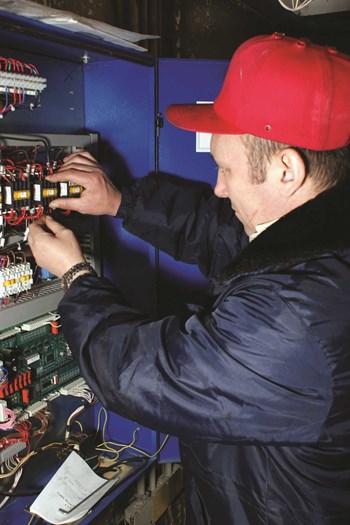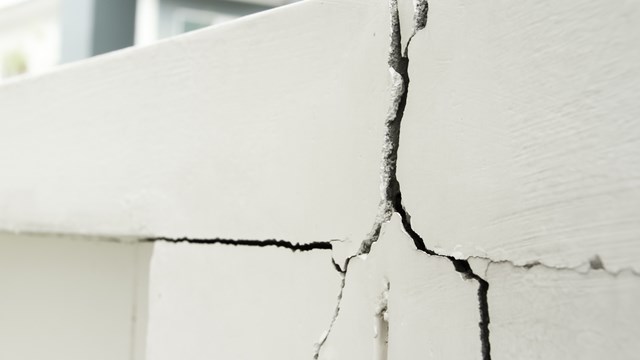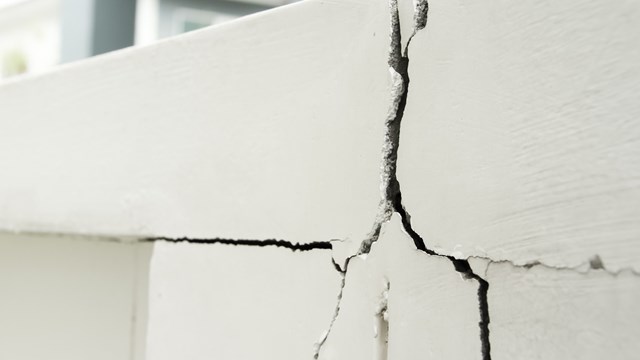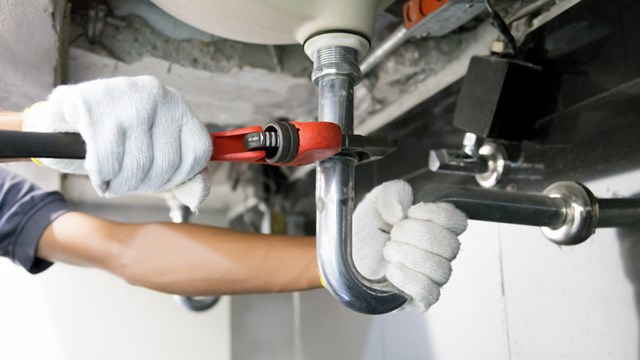
No matter whether you're traveling light or burdened with an armload of groceries, nobody likes to climb stairs. Recognizing this, mid- and high-rise condo developments frequently count elevators among their amenities of convenience—and in newly-constructed buildings, installing an elevator is taken as a matter of course.
Convenient as they are, and although elevator mishaps happen infrequently, elevators are a high-maintenance amenity and require regular care and attention, as well as adherence to safety codes in order to stay functional and safe.
Maintenance Programs
According to Lee Rigby, president of Vertical Assessment Associates in Tallahassee, some of the things to consider when developing a maintenance program for elevator equipment include equipment age, condition, and accumulated wear, design and inherent quality of the equipment, usage, environmental conditions and improved technology.
“The amount of maintenance in hours spent in many cases has gone down due to newer equipment that just requires less,” Rigby says. “Typically maintenance visits have for many years been at least once a month for hydraulic elevators and twice a month for traction elevators, but this depends a lot on the number of landings, the complexity of the equipment, and the factors listed above.”
That’s resulted in more cases of maintenance being performed quarterly on some equipment, with many elevator consultants now specifying a minimum number of hours that must be spent performing maintenance on a weekly or monthly basis.
General Look and See
Ronald Caminiti, senior inspector for Elevator Inspection Services, LLC of Palm Beach Gardens, who works on numerous condos throughout South Florida, says a good maintenance program is key to keeping an elevator safe and secure.
“We go in, establish that the phones work in the elevator, check fire and recall, check the door torque, check certain things that fire service operates properly and then go to the mechanical check,” Caminiti says. “We’ll check the emergency power, the lighting and the alarm bell. These are all just routine checks we do anytime we go in.”
The next step involves going on top of the elevator, where they will run through all the switches—the limits, the door locks, the gates—and look at a lot of little things that you might not think about in the general equipment.
“We check the traveling cables, counter weights, guides, hoists, switches and drives, leveling sensors and we check for what’s called anti-creep, where we run it 3-inches out of the floor and make sure it levels back to the floor in each direction,” he says. “Check the ventilation, look for rusted equipment and do a general review of the soundness of the hoist-way.”
Things to look for underneath the elevator include the floor, fire barriers, traveling cable hangers, buffers and tractions on hydro elevators.
“There’s a gamut of things we do and this is just some of it all,” Caminiti explains. “If it’s a hydraulic, we have to check the oil lines and make sure they are not leaking too much (they are allowed to leak five gallons per visit under code).”
Rules and Regulations
Back in 2000, Florida essentially privatized the inspection industry throughout the state, and those inspection companies must work though Mike Chavez, chief elevator inspector and manager of elevator inspection safety, the regulatory authority for all buildings throughout Miami-Dade County.
“The owners would hire a private inspector; the inspectors complete a report that we have in our system and submit them when they are done and if there are no violations, a client gets a certificate,” Chavez says. “If there are violations, the owner has 90 days to get the violations taken care of, get re-inspected and it can be resubmitted.”
The private residence elevators in South Florida adhere to a code under the American Society of Mechanical Engineers A17.1, which most of the manufacturers design their elevators to meet.
Florida has also adopted ASME A17.3, Safety Code for existing elevators and escalators, which sets minimum retroactive safety requirements.
“A commercial elevator has different requirements than a private residence elevator does, because it is constructed within a specific design,” Chavez says. “We have had owners install commercial-sized elevators in their [condominiums] because they want a bigger elevator, but then it has to meet the requirements of the commercial law.”
According to Florida law, all elevator equipment must be inspected annually, and depending on the type of equipment, certain tests are required in ensure safety. Additionally, every five years, an elevator must be tested with full capacity loads for increased safety measure monitoring as mandated by the state of Florida.
“If it’s a two-story building and they have a maintenance contract with a maintenance provider, they are exempt from inspections,” Chavez says. “They are not exempt from testing; all equipment must be tested.”
There are also requirements for elevators in the Americans with Disabilities Act (ADA) (Chapter 11 of the Florida Building Code), other sections of the Florida Building Code, NFPA-70 National Electrical Code, NFPA-72 National Fire Alarm Code, NFPA-13 National Fire Sprinkler Code, etc.
Elevator technicians in Florida are required to have a minimum of four years experience and pass a Certificate of Competency exam or be a licensed mechanical engineer. They are also required to obtain a certified elevator technician certificate from the Bureau, which requires having a CC and the minimum insurance.
They are also required to have a QEI by one of the three certifying agencies accredited by ASME to do so, and have the minimum insurance coverage required by Florida Statutes, and based on those requirements, obtain a CEI (certified elevator inspector) certificate from the Bureau of Elevator Safety.
Both the above certifications have annual minimum continuing education requirements.
Inspection Basics
Once an inspector is brought in to check out the elevator, he will look at all the basics and equipment.
“He makes sure that all the safety devices designed and required for that equipment are functional and are installed properly and adjusted properly,” Chavez says. “The inspectors who report to us, we will monitor their work on a spot-check basis to make sure they are following the requirements.”
Let’s say last year a condo had an elevator inspected in May and this year it waited until July. Even though they are having an inspection done annually, it could lead to problems.
“Buildings may not have had the elevator inspected in the same time each year and they might be late, so they could miss the opportunity to get a certificate renewal and that can get them in trouble,” Chavez says. “We send them a notice and they have so many days to correct that. If they fail to respond to an inspector’s report in a timely manner, they can also be fined.”
ASME has a checklist that should be used by an inspector to determine code compliance to the effective codes for that specific elevator, and all components of the elevator are to be checked for compliance. Tests are required to be performed by elevator personnel and witnessed by a QEI certified elevator inspector.
“There are some tests that are required annually and some that are required every five years. There are three-year tests as well, but very few elevators in condos have the type of equipment that requires them,” Rigby says. “The five-year tests are full-load tests and typically include brake tests which require 125 percent of the capacity of the elevator, so these tests are fairly time-consuming. The cost of testing is typically included in an elevator maintenance contract, but the costs for the inspector to witness the tests are usually paid along with the cost of the inspection to the inspection firm.”
It’s also vital to post all inspection notices and certificates inconspicuously in the elevator itself.
“If the condominium doesn’t put the certificates up in the elevator, that can be a problem because the residents that live there might not think it’s safe and then they will complain to us,” Chavez says. “This could also cause a problem with lost paperwork and then it becomes a hassle when it’s time to do it all again.”
A good inspection firm must also have the older editions of codes available as not every building has updated to the newer models.
“I spend a great amount of my time instructing our staff and teaching other QEI certified elevator inspectors and elevator technicians what the specific requirements are for elevators of specific vintages,” Rigby says. “I also am a continuing education provider for CAM certified property managers to help get this information out. Typically the building representatives are relying on their elevator maintenance firm or elevator consultant to keep them abreast of the requirements.”
Problems Arise
The “3 x 5 Rule,” which refers to a maximum distance in inches between the exterior doors and the interior line of the hoistway and interior door (or gate) that rides with the elevator car is the thing that most condos may experience if something goes wrong.
“I have been involved as an expert witness in a number of residential elevator cases and this is the most serious, and unfortunately, the most common problem,” Rigby says.
There can also be problems with doors closing, intercoms shortening out and other minor issue.
Florida statutes provide that the owner has 90 days to correct any code deficiencies. The elevator inspection report required to be filed with the Bureau is considered an "Order to Correct" if any violations are found. If there is an imminent safety hazard to the riding public the elevator equipment needs to be taken out of service until corrections are made. After corrections are made, a “callback” inspection is required to verify compliance with a report sent to the Bureau of Elevator Safety.
Money Matters
Annual code inspections by a QEI inspector can range from under $100 to $300, not including a fee for witnessing of tests. As five-year tests can take quite a bit of time they can cost as much as the inspection fee or more. This will vary considerably based on the type of equipment and the number of stories served by the elevator.
Maintenance costs are not per visit, as the equipment, callback labor, and sometimes even overtime repair visits are covered. Maintenance is usually priced at a fixed monthly.
Final Thoughts
According to the Elevator Escalator Safety Foundation (EESF), going by elevator is one of the safest ways to travel, with 12 million rides for every trip to the emergency room. And statistically speaking, the odds are that someone who uses an elevator every day will get trapped in one only “once in a lifetime.”
To achieve that sort of reliability, condos must continue to have a regular maintenance program and stay on top of its codes and inspections.
Keith Loria is a freelance writer and a frequent contributor to The South Florida Cooperator.






4 Comments
Leave a Comment